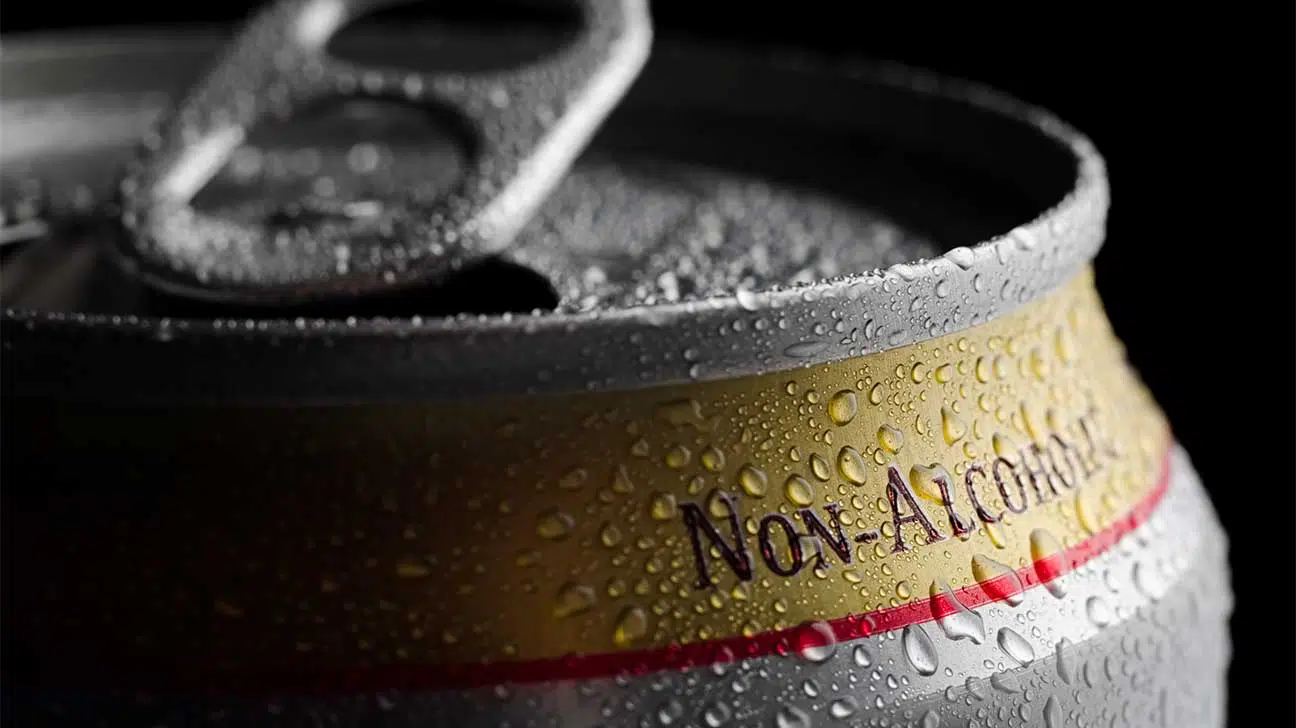
Non-alcoholic beer is a fast-growing market trend that caters towards people who like the taste of beer but wish to avoid the potentially harmful effects of alcohol.
Non-alcoholic beer may also be referred to as light beer, NA beer, low-alcohol beer, near beer, alcohol-free beer, mocktails, and other names.
The consensus among people in recovery for alcohol addiction about non-alcoholic beer varies. Some think drinking non-alcoholic beer is a safe alternative to the real thing, while others say it may lead to relapse.
How Non-Alcoholic Beer May Affect People In Addiction Recovery
The decision to drink non-alcoholic beer is a personal one, especially to those in recovery for substance abuse.
While non-alcoholic beer is free of the addictive and harmful effects of alcohol, there are other factors that may prove to be dangerous for people trying to abstain from alcohol entirely.
Non-Alcoholic Beer May Be A Trigger
A typical non-alcoholic beer is not entirely free of alcohol and may contain small amounts of alcohol anywhere from 0.5 to 1.5 percent ABV (alcohol by volume).
While this isn’t enough alcohol to get a person drunk, the familiar taste and smell can act as a trigger for people who crave the real thing and cause relapse.
Studies have shown that triggers such as smell are powerful enough to raise dopamine levels in the brain in the anticipation of drinking.
Ritualistic Drinking
Successful recovery from alcohol abuse requires creating new habits around how you de-stress and have fun.
Drinking non-alcoholic beer in social situations may become a slippery slope to falling into the same ritualistic drinking behavior that led to addiction in the past.
To avoid letting non-alcoholic beer drinking become a crutch, you may need to find other habits and behaviors that are healthier, and don’t require drinking or going to triggering locations such as bars.
Avoiding Temptations
If you’re still going to bars with the same group of friends that led you to alcohol addiction in the first place, it may tempt you to lose control and go back to drinking alcohol.
Surrounding yourself with people and settings that led you to abuse alcohol in the past, even though you’re only drinking non-alcoholic beer, may make it difficult to focus on your recovery.
Why Do People Drink Non-Alcoholic Beer?
There are many reasons why people may justify drinking non-alcoholic beer.
Reasons people drink non-alcoholic beer include:
- they enjoy the taste of beer
- drinking non-alcoholic beer in a bar provides comfort
- non-alcoholic beer reminds people of real beer
- people can romanticize drinking beer without breaking their sobriety
While some people in recovery feel safe drinking non-alcoholic beers, it all depends on a person’s personal experience and recovery journey.
If drinking non-alcoholic beverages gives you cravings for normal beer, it’s not worth putting your sobriety at risk, especially in the early stages of recovery.
Treatment Options For Alcohol Use Disorder
If you or a loved one have a substance use disorder involving alcohol, help is available in the form of evidence-based treatment at a rehab center.
Treatment programs may include:
- medication-assisted treatment (MAT)
- alcohol detoxification
- inpatient treatment
- wellness services
- intensive outpatient programs (IOP)
- individual and group counseling
- 12-step support groups such as Alcoholics Anonymous
- dual diagnosis treatment for co-occurring mental health disorders
Getting research-based treatment at a treatment center is the best way to avoid dangerous alcohol withdrawal symptoms and achieve long-term sobriety.
FAQs For Drinking Non-Alcoholic Beer While In Recovery
For more information about drinking non-alcoholic beer, see the most frequently asked questions below.
Is It Safe For Recovering Alcoholics To Drink Non-Alcoholic Beer?
Some people may feel safe drinking non-alcoholic beer in recovery, while others feel as though it poses too much of a risk of relapse and avoid it entirely.
While drinking a beverage with reduced alcohol content may not pose any immediate dangers, the threat is in the way it may lead to relapse for those in recovery.
Are There Safer Alternatives To Non-Alcoholic Beer?
A few alternatives to non-alcoholic beer include seltzer water, soda, tea, and other flavored beverages.
Can I Get Drunk Or Buzzed From Drinking Non-Alcoholic Beer?
Due to the almost non-existent alcohol content, it’s highly unlikely someone could drink enough non-alcoholic beer to get a buzz, let alone get drunk.
Find A Drug And Alcohol Recovery Center Near You
Call our helpline today for more information about substance abuse treatment and alcohol recovery.. Our team can assist you in finding a treatment program that fits your needs.
Addiction Resource aims to provide only the most current, accurate information in regards to addiction and addiction treatment, which means we only reference the most credible sources available.
These include peer-reviewed journals, government entities and academic institutions, and leaders in addiction healthcare and advocacy. Learn more about how we safeguard our content by viewing our editorial policy.
- Centers for Disease Control and Prevention (CDC) — Alcohol and Public Health
https://www.cdc.gov/alcohol/faqs.htm - National Institute on Alcohol Abuse and Alcoholism (NIAAA) — Rethinking Drinking
https://www.rethinkingdrinking.niaaa.nih.gov - Substance Abuse and Mental Health Services Administration (SAMHSA) — Alcohol Use
https://www.samhsa.gov/sites/default/files/alcohol-use-facts-resources-fact-sheet.pdf


